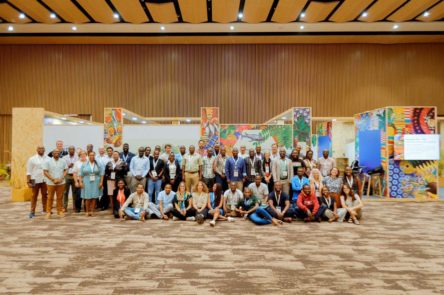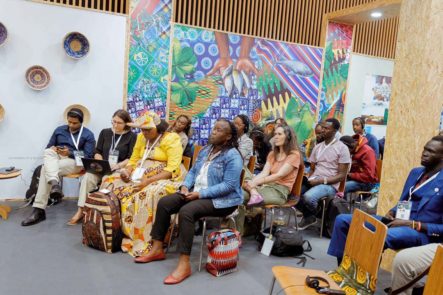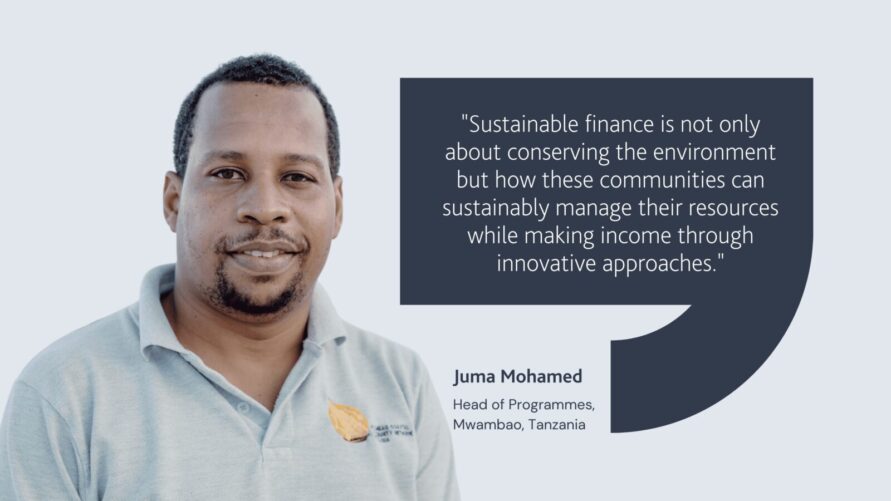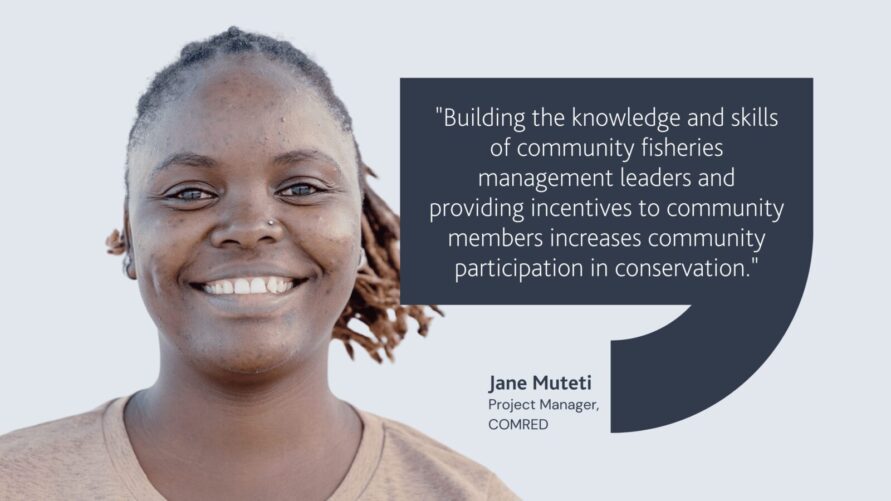The first-ever African Protected Areas Congress (APAC) convened in Kigali, Rwanda, earlier this month to discuss the future of conservation in Africa.
The five-day event brought together Indigenous peoples and local community representatives, governments, NGOs and the business sector to explore the role of protected areas in conserving nature, delivering vital ecosystem services, promoting sustainable development and safeguarding Africa’s traditions and cultural heritage.
Common themes in talks included the human-rights-based approach to conservation, funding community-led conservation and collaboration between communities, governments and NGOs.
Video credits: Maliasili
Blue Ventures supported partners COMRED and Mwambao to attend APAC, including representatives who are part of the African Marine Conservation Leadership Network (AMCLN) that we co-founded in 2020 with Maliasili. The AMCLN aims to accelerate and strengthen community-led marine conservation efforts in coastal East Africa and the Western Indian Ocean region by bolstering the skills, confidence and effectiveness of leaders of local and national organisations.
At the Sustainability and Resilience Pavilion, run in partnership by Maliasili, The IUCN Sustainable Use and Livelihoods Specialist Group (SULi) and the African Nature-Based Tourism Platform (ANBTP), COMRED director Patrick Kimani, who is part of the first cohort of 17 AMCLN leaders, spoke about the need to provide more direct and sustainable conservation funding for communities and grassroots organisations.
We need to find a mechanism that breaks the barriers between the funding and the people who are the boots on the ground,” said Kimani.
Video credits: Maliasili
Juma Mohamed, another AMCLN participant and Mwambao’s Head of Programmes, also stressed the importance of sustainable financing at APAC.
Mohamed also talked about his inspiring journey of marine conservation leadership and called on youth representatives to seize opportunities to speak up and be changemakers.
The discussions on conservation financing set the stage for the launch of Greening the Grassroots. A new report from Maliasili on sustainable funding for locally led conservation. An international team of researchers interviewed nearly 50 African civil society organisations (CSOs) and conducted an online survey for the study.
The findings shed light on the key barriers and challenges that CSOs and funders face and recommend improving funding practices to support African organisations better.
COMRED Project Manager Jane Muteti raised important points about how building small-scale fishers’ marine conservation knowledge and fisheries management skills strengthen governance.
Both people and the environment matter. Successful conservation initiatives are those that are people-centred,” she said.
The work of our Malagasy partner MIHARI was cited as an example of successful community-based fisheries and marine management at the conference. MIHARI’s chair Vatosoa Rakotondrazafy told us why locally managed marine areas are the future of marine conservation and deserve more legal recognition and financial support.
LMMAs are effective and real community movements. I can say that we in Madagascar are one of the best [networks] in Africa and that many countries want to learn from MIHARI,” she said.
An audio clip featuring Vatosoa at the Sustainability and Resilience Pavilion.| Credits: Randall Mabwa, Blue Ventures | Image: Maliasili.
Acknowledgements: Maliasili, COMRED, Mwambao and the MIHARI Network.






